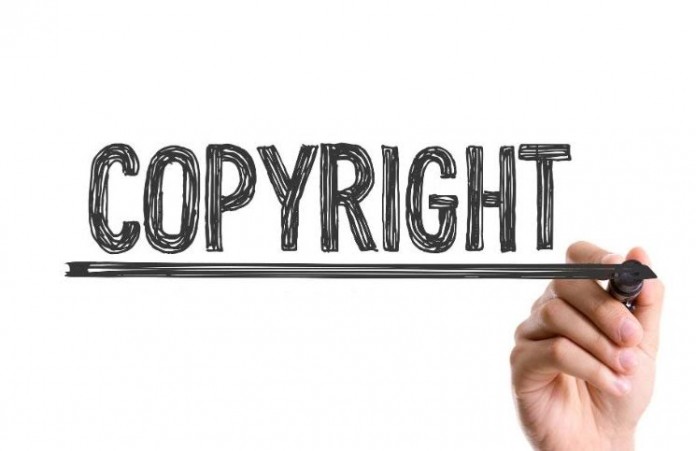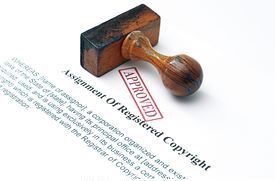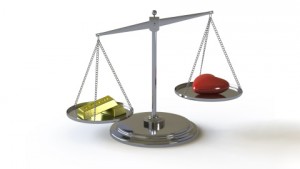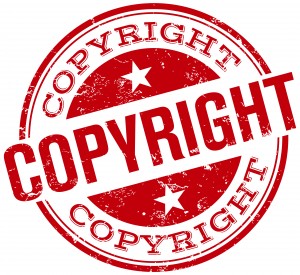In this blog post, Sayan Mukherjee, a student of University of Calcutta, who is currently pursuing a Diploma in Entrepreneurship Administration and Business Laws from NUJS, Kolkata, discusses the concept of assignment in copyright along with the most probable disputes related to it.
Introduction
Copyright, a unique intellectual property meant for the creative brothers and sisters around the world is res incorporalis. In that sense, it has no tangible existence but is a proprietary right and can be disposed of.
In modern life, every individual is aware of the concept of Copyright because of the expansion of media and communication throughout the world. Today’s world has no shortage of ideas, thoughts, modes of expression, and its distribution, which the world media has upheld through the gift of technology coupled with a wider scope of communication and share. This very thing has directed out attention towards the creative world, their rights and obligations, along with their grievances in the form of disputes faced by the creators.
The Copyright Act, 1957 as amended in 2012 is the current vehicle to settle and guide the creators towards betterment and give them some pecuniary opportunities so that they are further encouraged to bless the world with their creativity.
Assignment of Copyright
Nobody is entitled to copy, reproduce, publish or sell an original writing, painting, dramatic production, sculpture, etc. without the permission of the creator. Thus, law provides a right to the owner of the copyright (i.e. the creator) to transfer the ownership of the copyright to a third party. For instance, in the case of making a complete movie – all the creative persons with their idea turned into relevant works come to a producer, assign their rights that subsist in their work in return for a royalty. These works are then summed up to form a complete movie. Yes, the process isn’t that easy and involves many questions that arise both at the time of assignment and especially after it.
Facets of Copyright Assignment
- It is a pecuniary opportunity for the first owner of copyright. The assignment must specify the amount of copyright [vide Section 19(3) of the Copyright Act]. The creator shall not assign or waive the right to receive royalties to be shared on an equal basis with the assignee of copyright, subject to certain conditions. [vide Section 18(1) proviso of The Copyright Act, 1957[1]]
- In the case of an assignment of copyright in any future work, it shall take effect only when the work comes into existence. In this regard, “assignee” includes the legal representatives of the assignee, if he dies before the work comes into existence. [vide Section 18(1) proviso of the Copyright Act]
- The ownership may be assigned either wholly or only for a part of the work in question. [vide Section 18(1) of the Act]
- The Copyright Assignment must be in writing and signed by the assignor or by his duly authorized agent. [vide Section 19(1) of the Act]
- The duration of assignment must also be specified. The Delhi High Court recognized Section 19(5) and stated that if the assignment deed is silent about the duration, it shall be deemed to be 5 years from the date of assignment[2].
- The agreement deed may specify the territorial extent of such assignment. If silent, it shall be presumed to extend within India. [vide Section 19(6) of the Act]
- The assignment shall be subject to revision, extension, or termination on terms mutually agreed upon by the parties. [vide Section 19(3) of the Act]
- Where the assignee fails to exercise his rights within one year from the date of assignment, the assignment in respect of such right shall be deemed to have lapsed, unless otherwise specified in the assignment deed. [vide Section 19(4) of the Act]
- If the assignment is in contrary to the terms and conditions of the rights already assigned to a copyright society to which the creator is a member, it shall be deemed void. [vide Section 19(8) of the Copyright Act[3]]
- The creator is entitled to subsequent royalties in the course of future exploitation of a cinematographic film, which includes his work, other than by way of exhibitions in a cinema hall. For example, the creator will be entitled to subsequent royalties for satellite right, home video, internet rights, the etc. Similar clause has been added for the case of sound recording. [vide Section 19(9) and 19(10) of the Copyright Act[4]]
- In the case of a manuscript, the copyright being a personal property of the owner can be transmitted by testamentary disposition. [vide Section 20 of the Act]
- The equitable assignment is just the agreement to assign.
- The assignee has the rights of- translation, abridgment, adaptation, dramatic and filmmaking in the work.
- For relinquishment of work, the author has to give notice in prescribed form to the Registrar of Copyrights or by way of public notice. On its receipt, Registrar shall publish it in the Official Gazette. With 14 days of the publication, the Registrar shall post the notice on the official website of Copyright Office, so that such notice remains in the public domain for not less than three years. Such right shall cease to exist from the date of the notice. [vide section 21 of the Copyright Act]
It may be noted in this context, that the author has an alternative for the shortcomings or confusions of assignment of copyright. They can register their work with a copyright society and thereafter license it to whomsoever they desire.
Moral Rights involved in Copyright Assignment
Moral rights are independent of the author’s copyright and shall remain with the author even if he has assigned his copyright.
- The creator of work has the right to claim ownership thereof;
- In case of any distortion, modification or mutilation of the original work, he shall have the right to claim damages;
- If harm is being caused to the goodwill of the creator by commission or omission of any act by the assignee, he shall have the right to damages provided such an act is done before the expiration of the term of assignment.
Foreseeable disputes
- The first dispute which may arise is that as regards the period of copyright assignment. The statute is very particular that an assignment has to be for a specified period even if there is an agreement in contrary[5]. [vide Section 19(2) of the Copyright Act]
- Again, in a situation where assignee fails to exercise his rights assigned to him, and the assignor’s actions do not influence such failure, then, the statute empowers the Copyright Board, on receipt of a complaint from the assignor, to take cognizance of the case and make necessary inquiries as it may deem fit. It further gives a discretionary power to the Board where it can revoke such assignment. [vide Section 19A(1) of the Copyright Act]
- In the case of a monetary dispute over a copyright assignment, the Copyright Board has the power on of a complaint from the aggrieved party, to hold an inquiry and pass necessary order including an order for the recovery of any royalty payable [vide Section 19A(2) of the Copyright Act]. Any such final order must be passed within a period of six months from the date of receipt of the complaint. Delay in compliance shall oblige the Board to record the reasons thereof. [vide Section 19A(3) of the Copyright Act[6]]
Conclusion
The feasibility of Copyright Assignment is highly questioned because of the rising counts of Copyright Infringement cases. The sole objective of assignment process is to provide both pecuniary as well as distribution benefits to the original work of the creator. It cannot be used to deprive the original owner permanently from his creation.
Copyright Assignment is an inevitable necessity in this dynamic world. People can’t be self-sufficient in every respect. For the better frame of the Art, the ownership right of the creation needs to change hands and bring out the full potential of the original work by exploring various tiers of creativity.
Footnotes:
[1] Inserted by Copyright (Amendment) Act, 2012.
[2] Pine Labs Private Limited vs. Gemalto Terminals India Private Limited and others (FAO 635 of 2009 and FAO 636 of 2009)
[3] Inserted by Copyright (Amendment) Act, 2012.
[4] Inserted by Copyright (Amendment) Act, 2012.
[5] Saregama India Ltd. V. Suresh Jindal AIR 2006 Cal. 340.
[6] Inserted by 2012 Amendment.
 Serato DJ Crack 2025Serato DJ PRO Crack
Serato DJ Crack 2025Serato DJ PRO Crack














 Allow notifications
Allow notifications


